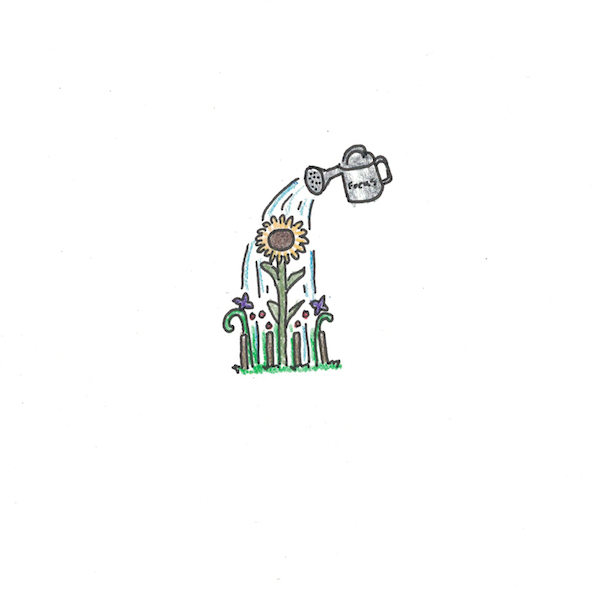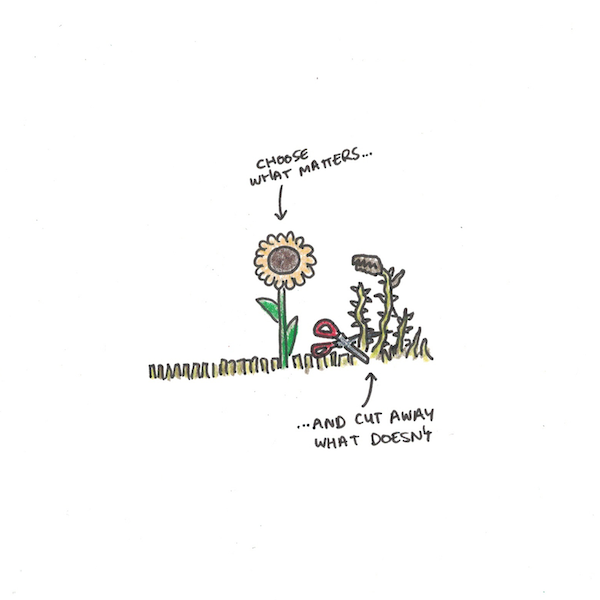Next week, Cal Newport and I will hold a new session of Life of Focus. The course is a three-month training program to help you achieve greater productivity and peace of mind.
We held our first session last fall. It was a resounding success. Students reported making major strides in their work, wresting back control over time and reducing their stress.
I even put myself through the same training regimen. It was a major factor behind me finishing my most research-intensive essay ever. As a new parent, the return to focus also helped me create more time to relax with my family.
The full course is a serious endeavor. Three months, divided over three different challenges to achieve focus in work, life and mind. Yet, even a little extra focus can go a long way. Therefore, for the next week, I’m going to be sharing four lessons drawn from the course to help you live a more focused life.
Let’s begin…
What is a Life of Focus?
The idea behind a life of focus is simple: the quality of your life is, to a large part, determined by the direction of your attention.
In your work, it’s not the speed in which you do everything, but the choice of what to focus on that brings the greatest returns. Doing the hard things that truly matter outweighs years of busyness spent on things that don’t.
In your life, do you spend your time constructively? Do you spend it in ways that build new skills, lasting memories and deeper bonds? Or does it get sucked away into your phone, leaving you bored, numb or anxious.
A focused life isn’t a commandment, but a choice. A choice to align how you spend the limited time you have on earth doing things that actually matter to you.
Finding Depth in a Distracted World
Focus is difficult. Our minds weren’t made for modernity. Office jobs, smart phones and 24-hour news cycles all hijack our attention in ways our ancestors never anticipated.
That is why we have an urgent need both for a philosophy of focus and a system for sticking to it.
You need a philosophy of focus. A deliberate decision about what matters in your work and your life. How can you make doing the important things easier? How can you prepare yourself so that the default leans toward deeper, more satisfying activities?
You need a system to stick to it. Just the intention to focus isn’t enough. The forces that demand your attention are powerful. They’re not going away. (If anything, they’re only getting stronger.) You need habits, rituals, metrics and tools that will keep you on track.
A system takes time to build and test. Part of the reason we teach Life of Focus over three months is that any less time and the changes are mostly superficial. It’s easy to rush headlong with a burst of enthusiasm. But only when you change the underlying system do you change your results.
Take Action Now
Each lesson this week, I want to encourage you to take one small action to improve your focus. Today, I want you to start making your philosophy of focus explicit:
- Try to visualize what a focused working life would mean for you. Which activities would make a difference five years from now? Which activities would you omit?
- Next, try to visualize what a focused life in your personal time would be. What would you spend your free time doing? What distractions would you cut down on?
- Write, in the comments below, your vision of the focused life.
Visualizing isn’t enough, obviously. Making focus a reality takes careful planning, modifying the systems in the background of your life that currently make things difficult. But, having a vision of what life could be like is an essential first step.
In the next lesson, I’ll talk about how to start thinking about your life’s work. Not simply getting more done, but focusing on the activity that is both hard and meaningful.




 I'm a Wall Street Journal bestselling author, podcast host, computer programmer and an avid reader. Since 2006, I've published weekly essays on this website to help people like you learn and think better. My work has been featured in The New York Times, BBC, TEDx, Pocket, Business Insider and more. I don't promise I have all the answers, just a place to start.
I'm a Wall Street Journal bestselling author, podcast host, computer programmer and an avid reader. Since 2006, I've published weekly essays on this website to help people like you learn and think better. My work has been featured in The New York Times, BBC, TEDx, Pocket, Business Insider and more. I don't promise I have all the answers, just a place to start.